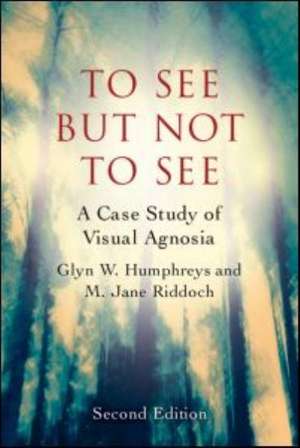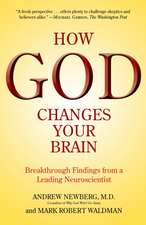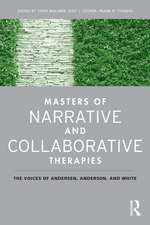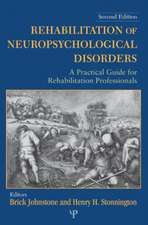A Case Study in Visual Agnosia Revisited: To see but not to see
Autor Glyn Humphreys, Jane Riddochen Limba Engleză Paperback – 29 oct 2013
A Case Study in Visual Agnosia Revisited discusses John’s case in the context of research into the cognitive neuroscience of vision over the past twenty years. It shows how John’s problems in recognition can provide important insights into the way that object recognition happens in the brain, with the results obtained in studies of John’s perception being compared to emerging work from brain imaging in normal observers. The book presents a much fuller analysis of the variety of perceptual problems that John experienced, detailing not only his impaired object recognition but also his face processing, his processing of different visual features (colour, motion, depth), his ability to act on and negotiate his environment, and his reading and writing.
A Case Study in Visual Agnosia Revisited will be a key reference for those concerned with understanding how vision is implemented in the brain. It will be suitable for both undergraduate students taking courses in cognitive psychology and neuropsychology, and also researchers in the cognitive neuroscience of vision. The presentation of John’s case, and the human aspects of the disorder, will also be of great interest to a general audience of lay people interested in perception.
| Toate formatele și edițiile | Preț | Express |
|---|---|---|
| Paperback (1) | 405.66 lei 6-8 săpt. | |
| Taylor & Francis – 29 oct 2013 | 405.66 lei 6-8 săpt. | |
| Hardback (1) | 995.54 lei 6-8 săpt. | |
| Taylor & Francis – 29 oct 2013 | 995.54 lei 6-8 săpt. |
Preț: 405.66 lei
Nou
Puncte Express: 608
Preț estimativ în valută:
77.62€ • 84.58$ • 65.41£
77.62€ • 84.58$ • 65.41£
Carte tipărită la comandă
Livrare economică 23 aprilie-07 mai
Preluare comenzi: 021 569.72.76
Specificații
ISBN-13: 9781848720732
ISBN-10: 1848720734
Pagini: 182
Ilustrații: 55 b/w images, 11 color images, 33 halftones, 11 color halftones and 22 line drawings
Dimensiuni: 138 x 216 x 10 mm
Greutate: 0.2 kg
Ediția:Nouă
Editura: Taylor & Francis
Colecția Psychology Press
Locul publicării:Oxford, United Kingdom
ISBN-10: 1848720734
Pagini: 182
Ilustrații: 55 b/w images, 11 color images, 33 halftones, 11 color halftones and 22 line drawings
Dimensiuni: 138 x 216 x 10 mm
Greutate: 0.2 kg
Ediția:Nouă
Editura: Taylor & Francis
Colecția Psychology Press
Locul publicării:Oxford, United Kingdom
Cuprins
1. Serendipity 2. Meeting in a dressing gown 3. On becoming agnostic 4. The visual brain 5. A short history of agnosia 6. Integrative agnosia 7. Seeing the whole 8, What’s in a face? 9. Colour, movement, action! 10. The written word 11. Living with agnosia
Recenzii
'This book represents the very best of scientific sleuthing and captures the ingenuity of researchers delving into the mechanisms underlying visual agnosia. This scientific account is coupled with the personal and poignant story of a man, his life and two dedicated researchers. It is both intellectually compelling and heartwarming.
This book is a wonderful illustration of the evolution of scientific knowledge, as Riddoch and Humphreys revisit their studies of John, and show how our understanding of visual agnosia and its underlying mechanisms has grown since 1987. The book is scientifically grounded and, at the same time, offers a charming account of a patient and his ups and downs.
The approach adopted by Humphreys and Riddoch reflects the best of cognitive neuropsychology using detailed single-case study methodology. The experiments are ingenious and creative and the results elucidate the mechanisms underlying visual agnosia. A brilliant and compelling read for anyone interested in how the brain works.' - Marlene Behrmann, Department of Psychology, Carnegie Mellon University, USA
‘Through the fascinating first-hand descriptions of the patient, HJA, we learn what it is like to lose many of the essential features of vision (such as the ability to recognise colours and objects) but yet still have the experience of seeing; and through the ingenious research of Humphreys and Riddoch we learn what this tells us about how the brain creates our vision of the world. This classic book is a great read and very accessible.’ - Jamie Ward, Department of Psychology, University of Sussex, UK
This book is a wonderful illustration of the evolution of scientific knowledge, as Riddoch and Humphreys revisit their studies of John, and show how our understanding of visual agnosia and its underlying mechanisms has grown since 1987. The book is scientifically grounded and, at the same time, offers a charming account of a patient and his ups and downs.
The approach adopted by Humphreys and Riddoch reflects the best of cognitive neuropsychology using detailed single-case study methodology. The experiments are ingenious and creative and the results elucidate the mechanisms underlying visual agnosia. A brilliant and compelling read for anyone interested in how the brain works.' - Marlene Behrmann, Department of Psychology, Carnegie Mellon University, USA
‘Through the fascinating first-hand descriptions of the patient, HJA, we learn what it is like to lose many of the essential features of vision (such as the ability to recognise colours and objects) but yet still have the experience of seeing; and through the ingenious research of Humphreys and Riddoch we learn what this tells us about how the brain creates our vision of the world. This classic book is a great read and very accessible.’ - Jamie Ward, Department of Psychology, University of Sussex, UK
Descriere
Visual agnosia is a rare and fascinating disorder of visual object recognition that can occur after a brain lesion. In this book Humphreys and Riddoch revisit the case of their patient John, over twenty years after it was originally described in To See But Not To See, in 1987. This fully updated new edition discusses John's case in the context of cutting-edge research into the cognitive neuroscience of vision. It will be of interest to researchers and students studying the cognitive neuroscience of vision.










